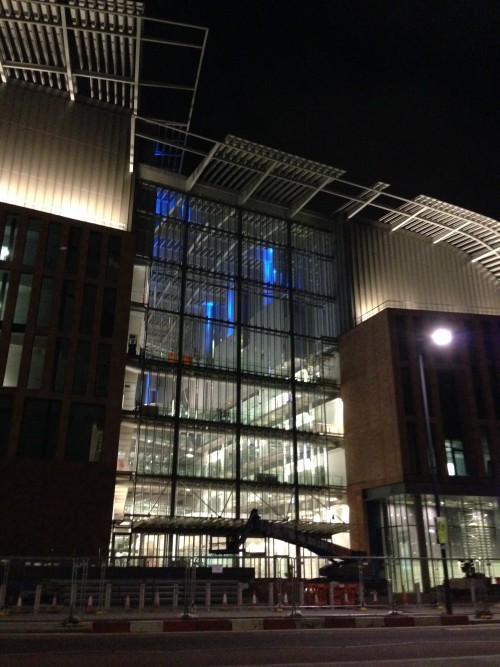Research without boundaries – I remain an optimist
Posted by Vicki Metzis, on 16 July 2016
This week I attended a meeting with Paul Nurse, director of the The Francis Crick Institute, who spoke about the potential implications of the pending Brexit on scientific research at the Crick. Like many other postdocs, I never envisaged that I would be sitting in the Fletcher Hall at Mill Hill following a referendum outcome that meant the UK would eventually leave the EU….but that is what happened, and here we are. So what happens next?
The Crick was implemented to facilitate “Discoveries Without Boundaries”. Behind this mantra, the organisation thrives on the exchange of people, infrastructure and funding – elements that support individuals to reach their full potential, which in turn, facilitates the best possible research outcomes. At a postdoctoral level, 56% of scientists at the Crick are EU nationals (myself included). In addition, the Crick receives very generous funding support from EU sources such as the ERC and Marie Curie grant schemes. This support currently amounts to 5 million pounds per annum – a figure that had been projected to rise to 10 million, as the Crick becomes fully operational in central London.
Science requires vast sums of money – a fact that one can hardly ignore, especially when the UK benefits from contributing less to the EU than it receives in return (see the report from the Royal Society). A deeper concern, however, is that it is not yet clear what support UK scientists could expect to receive from the government moving forward (see related post “People in this country have had enough of experts”). It remains to be seen what mechanisms will be put into place, and how these will be managed into the future. But the very essence of what science is all about (education, innovation, discovery, just to name a basic few), culminates in multifaceted ways that can enhance quality of life. How long can this be ignored by Westminster politics??? If we want a “country that works for everyone”, the new buzz words on the lips of newly appointed PM Theresa May, we simply can’t have our cake and eat it too.
Although Brexit has come as a terrible shock to almost everyone I know, and no matter the perceived restrictions, the actual situation is that UK science currently represents a thriving and highly diverse workforce (the Crick alone employs people from over 70 different nations). Working in this environment is exciting, challenging and highly rewarding. While Brexit was not an outcome favoured by most scientists, including Paul Nurse, it doesn’t change the fact that I am currently surrounded by some of the world’s most talented individuals. That and the fact that I’m not ashamed to admit, in the words of Dr Who,
“I am and always will be the optimist. The hoper of far-flung hopes and the dreamer of improbable dreams”.
As the whole is greater than the sum of its parts, I remain hopeful that as a scientific community, although we move forward with many variables left unknown, we can still strive to make valuable contributions to shape the future of UK science. This is vital to ensure the continued prosperity of scientific pursuits and to minimise the impact of the challenges that lie ahead.



 (10 votes)
(10 votes)